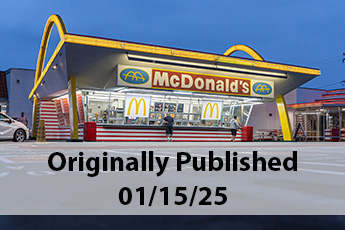There are an estimated 5.3mm hotel rooms in the US and a study by Luxe Digital finds 65% of leisure and 69% of business travelers search online to decide where and how to travel. The Global Business Travel Association finds the following amenities were most likely to influence the business travel experience: a convenient, comfortable hotel (63%); nonstop flights (47%); booking flexibility (36%); paid time off for longer trips (34%); the type of airline carrier (28%) and being able to bring family or friends along (27%).
Traveling can be fun or crazy, but hospitality lending can be a good niche for many community banks that do it right. There are definitely unique challenges to the sector, but with the right expertise and technology, the profit on high-yielding hotel loans can outweigh the risks.
Many lenders that are open to hospitality lending are conservative in their approach. In fact, the National Association of Realtors reported recently that only 45% of hotel transactions in 2018 had LTV ratios of 75% or higher, while 69% of multi-family transactions were above 75% during the same timeframe. But, there are some other things to consider too.
First of all, when hotels are managed by third-party operators and not the borrowers, banks that make these loans must employ additional measures to make sure the operator is experienced and qualified. Also, banks need to make sure that they have the right to assume hotel management agreements with operators in case of loan default. This gives the lender primary rights to work directly with the operator in case of borrower default.
Banks may consider "comfort letters" with franchisors that can be used, if necessary, to terminate the franchise agreement in the case of borrower default and sale of the property. When possible, banks may seek to obtain control of the hotel's cash revenue through the use of a deposit account control agreement.
Moreover, when making hotel loans, banks need to perfect security in not only the mortgage or deed of trust for the real estate property, but also other security instruments. These include UCC filings for property such as the furniture, TVs and appliances in each room.
In the event that a bank faces the decision to foreclose on a hotel, there are additional considerations due to the operational nature of this property type. For example, is there cash flow to pay worker salaries? Is the property in compliance with safety codes? Banks may work through these issues with the help of experienced legal counsel and a qualified third-party hospitality management consultant, as needed.
Banks that are successful make good use not only of knowledgeable underwriters and specialized attorneys to help, but they also use the right types of technology to reduce risk and enhance profitability. Customized commercial loan software can help banks better manage multiple loans and other funding that is typically made to hotels, including bridge loans, permanent loans, mezzanine loans and preferred equity.
If you do hotel lending, we hope that we have helped you in a small way to enjoy your stay!




